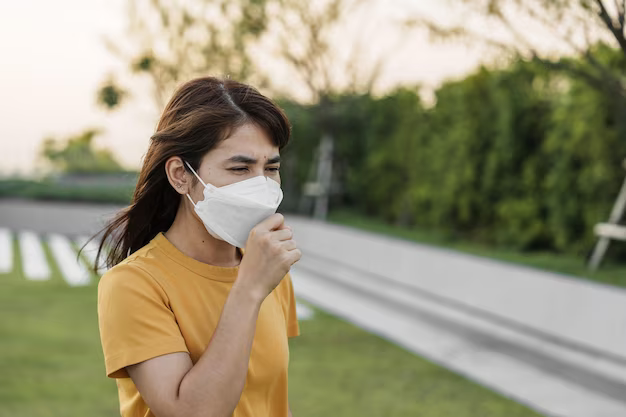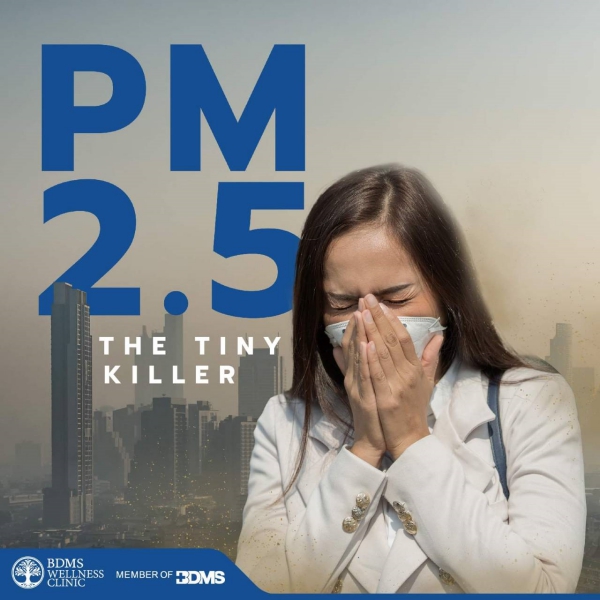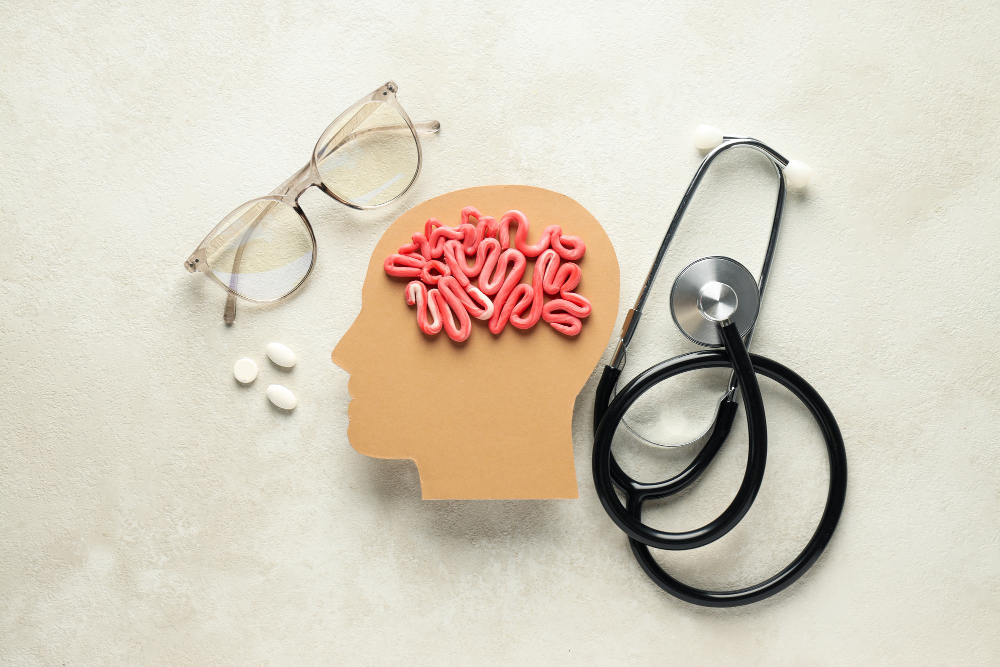
PM 2.5 The Tiny Killer
You may notice that winter time in recent years is not quite the same. The morning sky is not as bright as before as hazy fog looms over the city. Many misjudge this as a natural phenomenon, not realizing that this deadly smog is slowly damaging our health.
The term PM 2.5 is used to describe particulate matter smaller than 2.5 micron. To visualize it better, the particle is 20 times smaller than a human hair. It is recognized as ‘Fine Inhalable Particles’ which means it can be absorbed into our bodies through the respiratory system. Many see PM 2.5 as a type of dust that can affect the nose and lungs. The truth is, the particle is so small that it can penetrate our airbags into our blood circulation and cause dysfunction in our organs. The particle is clearly deadlier than one can imagine. The tiny speck of dust that is PM 2.5 is man-made. It is a by-product of industrial air pollution, traffic, heavy machinery, crop and garbage burning. Even the smallest thing can cause air pollution.
How can PM 2.5 affect our health? Why can this phenomenon cause such public distress? Let’s find out today.

Health Impact of PM 2.5
Many diseases are caused by the exposure to PM 2.5. Over a short term observation period (under 24 hours), inhaling PM 2.5 is related to hospital admission for lung and heart disease, for example, acute and chronic bronchitis, and acute asthma. These symptoms can be found widely among children, the elderly and people with lung or heart disease.
Over a long term observation period (more than one month), PM 2.5 is found to be associated with premature mortality, especially with people with lung or heart disease. A study shows that PM 2.5 is related to neurodegenerative diseases such as Alzeimer’s. The particle can also be found in our intestine, interrupting the work of bacteria in our digestive tract.
Not only is PM 2.5 dangerous, when transition metal particles such as metal, lead, mercury, nickel, zinc enter our body, they form a substance called Free radicals (also known as Oxidative stress). This substance deteriorates cells in our bodies. It can cause children to have shortened attention spans, lowered immune systems — causing them to have allergies and catch flu more often, rashes and more alarming diseases like diabetes, vascular disease and paralysis.
How do free radicals affect our health?
Free radicals are unquestionably harmful to our health. When cells in our bodies die, they are transported and collected in the liver which acts as the body’s waste disposal department. When there is too much waste overflowing into the factory, it will start leaking out into our bodies, causing further illnesses including cancer. Our livers normally produce an antioxidant, a type of amino acid called glutathione. If glutathione in the liver is high, it facilitates a more effective disposal of waste. In contrast, if the level of glutathione is low, this disposal of waste is less effective which causes illness. Being exposed to a bad environment, drinking alcohol and smoking can cause lowered glutathione level.
Food rich with glutathione are the likes of avocado, asparagus, roselle, and spinach. These vegetables can help nurture the liver. If higher glutathione intake is needed, studies show that consuming glutathione supplements 250 – 1,000 milligrams per day for over 6 months can help improve the level of glutathione in blood. One and a half cups of asparagus contain 26 milligrams of glutathione. Although not much glutathione is found in food but a partial improvement is better than nothing at all.
Moreover, consuming fruits and vegetables rich in different types of antioxidants can help reduce inflammation in our bodies, for example, curcumin in turmeric, lycopene in tomato, quercetin from sour tasting fruits and green vegetables, and vitamin E from nuts. Silymarin is another natural source of flavonoid known to have antioxidant properties present in Milk Thistle, which has beneficial effects on the liver, such as lowering toxicity and enhancing the benefits of glutathione.
What should we do now that the dust is here?
What we can do now is to prevent the particle from entering our bodies Less outdoor activities, staying in closed indoor area and installing air filter are all good ideas. If you need to go outside, be sure to wear a protective face mask like N95, which was designed specifically for this cause. It can greatly help reduce inhaling the particle into our bodies.
However, dealing with the source of air pollution seems to be a better way to solve the problem in a long term, no plant burning, check your vehicle conditions to reduce pollution, no leaves or garbage burning. Everyone must act together for better future environment for the generations to come.
References
- Shou Y, Huang Y, Zhu X, Liu C, Hu Y, Wang H. A review of the possible associations between ambient PM2.5 exposures and the development of Alzheimer’s disease. Ecotoxicology and Environmental Safety. 2019;174:344-52.
- Anderson JO, Thundiyil JG, Stolbach A. Clearing the air: a review of the effects of particulate matter air pollution on human health. Journal of Medical Toxicology. 2012;8(2):166-75.
- Weichenthal SA, Pollitt KG, Villeneuve PJ. PM 2.5, oxidant defence and cardiorespiratory health: a review. Environmental Health. 2013;12(1):40.
- Richie J, Nichenametla S, Neidig W, Calcagnotto A, Haley J, Schell T, et al. Randomized controlled trial of oral glutathione supplementation on body stores of glutathione. European journal of nutrition. 2014;54.
- Kelly FJ. Oxidative stress: its role in air pollution and adverse health effects. Occupational and environmental medicine. 2003;60(8):612-6.
- Lodovici M, Bigagli E. Oxidative stress and air pollution exposure. Journal of toxicology. 2011;2011.
- Scott Luper N. A review of plants used in the treatment of liver disease: part 1. Alternative medicine review. 1998;3(6):410-21.



Leave a Reply
You must be logged in to post a comment.